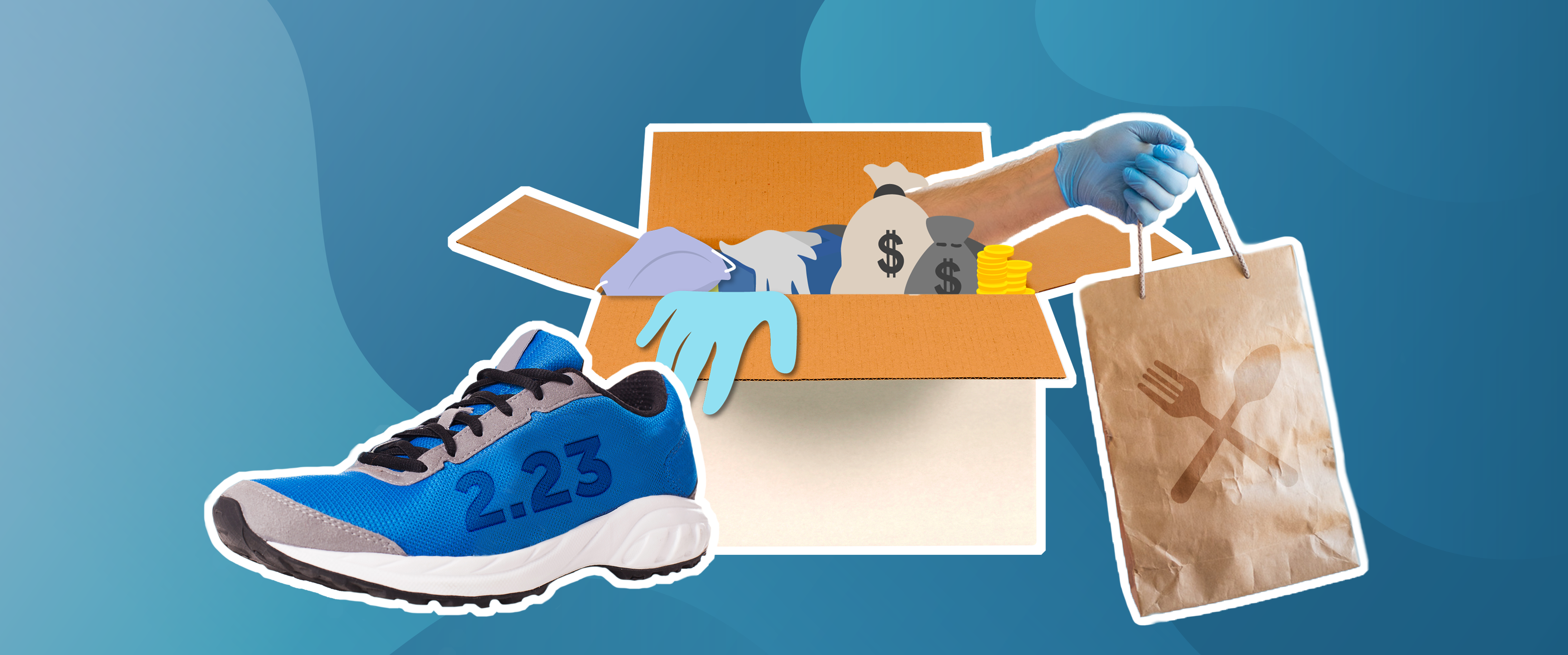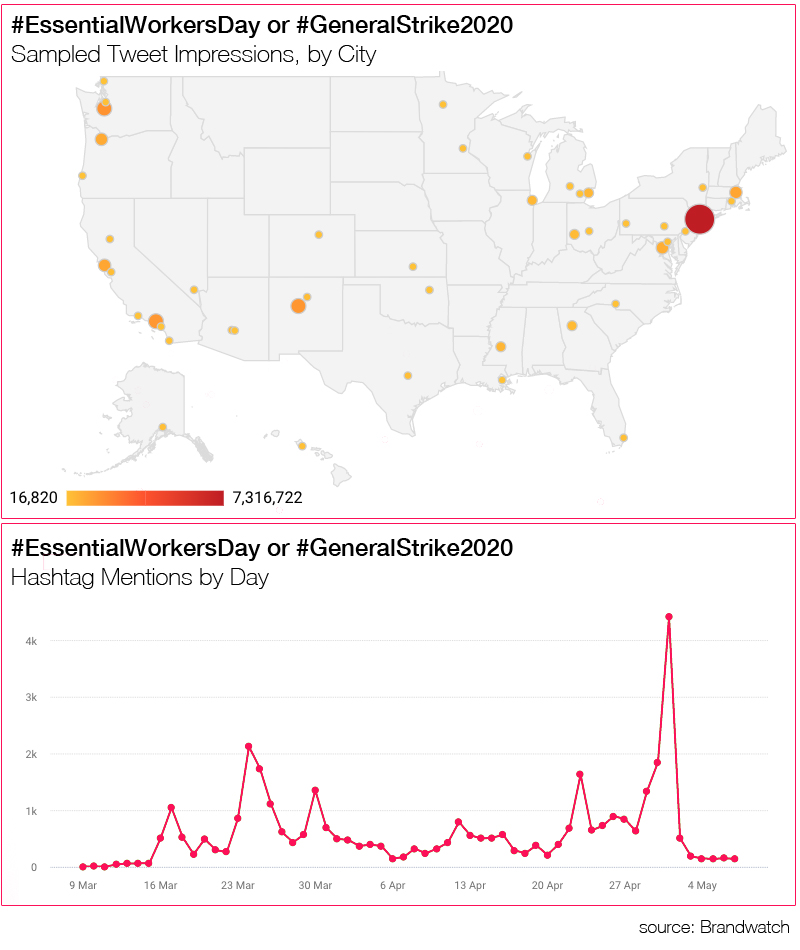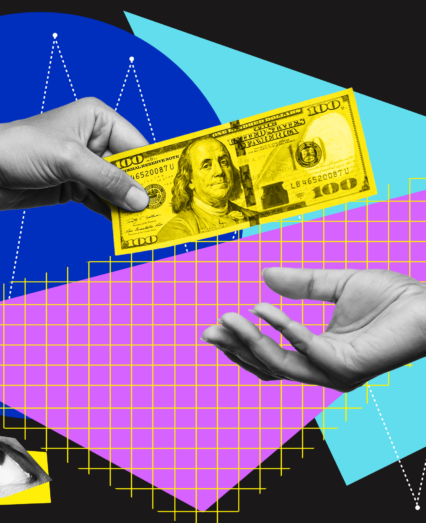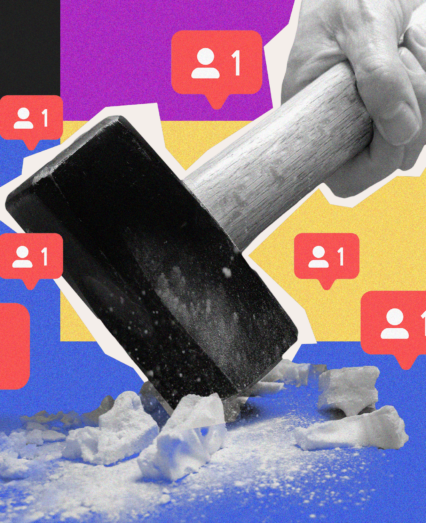Constitutional freedoms are important for our society, and the American ability to innovate beyond troubling conditions has led to some amazing results. Our country was born on religious freedom and the right to free speech, and many social movements started thanks to our right to peaceably assemble. From Stonewall to Selma, social activists have always found ways to help communities in need.
But what happens when a global health crisis forces people to act and protest from home?
Since the COVID-19 crisis started, there have been a few hashtags circulating to rally around specific causes, and I was curious to see what was behind the viral hashtags, how widespread their use was, and if there was any real-world impact derived from their publicity.
#SaveRestaurants
From an impact perspective, one of the first big rallying cries was around the restaurant industry, centered around #SaveRestaurants. According to a National Restaurant Association survey, US restaurants lost about $50 billion in April alone, which is reason enough to want to support your local pizza joint.
#SaveRestaurants launched on March 17th, and has seen 11,239 mentions as of May 7.
Although enthusiasm was initially high as restaurants began laying off workers, attention began to taper off throughout the beginning of April, until Chicago-based celebrity chef Rick Bayless stepped in and gave mentions a quick shot in the arm. Based on a recent article from Eater, restaurants that are able to survive will have a huge hill to climb when it comes to reopening, not to mention other small businesses impacted by the fallout.
As we can see from this data, it’s hard to make a sustained impact when the crisis itself continues to drag on. Our best advice to people feeling disheartened? Support by ordering takeout directly through the restaurant, tip your delivery workers generously, and if you can, make it a habit.
#EssentialWorkersDay + #GeneralStrike2020
Our next analysis revolves around an attempted boycott of Walmart, Amazon, FedEx, Whole Foods, Target, Shipt and Instacart, which took place on May 1, and aimed to call attention to getting workers fair benefits, like sick leave, hazard pay and personal protective equipment. This social protest centered around the hashtags #GeneralStrike2020 and #EssentialWorkersDay.
#EssentialWorkersDay and #GeneralStrike2020 began around March 9
and saw 36,168 mentions as of May 7.
Initially, #GeneralStrike2020 was a rallying cry around the backlash behind small business bailout loans landing in the hands of large corporations, but evolved to become a worker safety hashtag as it became clear home delivery companies weren’t adjusting practices to suit the new realities.
In one popular instance, Seattle-based Amazon fired a worker who led a walkout in late March, and again fired two more employees for speaking out about conditions. Although the boycott didn’t seem to impact business for those companies, the massive press coverage vaulted worker conditions to the front page of the public eye.
#IRunWithMaud
Lastly, but certainly not least, has been the incredibly sobering #IRunWithMaud campaign. This activism centers around the death of Ahmaud Arbery, a 25-year-old who was killed as he ran in a neighborhood in Georgia back on February 23.
#IRunWithMaud was launched on April 24 and has seen more than
107,000 mentions, many of which came after May 5.
Ahmaud Arbery’s story was buried in headlines about coronavirus when the incident occurred, and surged back once video was released of the murder. On May 6, two people were arrested in connection with the killing, which coincided with a social effort to honor Ahmaud by running 2.23 miles on Friday, May 7, which would have been his 26th birthday.
Not only did this social effort raise awareness about a horrific crime, but it sadly reminded the nation that we still have bigger problems to face, and they must be faced no matter the barrier. As the justice system takes its course, people will continue to rally this message and likely carry on the conversation once social life resumes.
Activism can be large or small scale, analog or digital. Since events were a popular option on Facebook, people have been using social media to gather, share ideas, amplify messages and protest for their favored causes. However, when the physical social aspect is taken out of the picture, it forces even more conversation online and potentially amplifies it even more.
As social platforms continue to see a rise in engagement, these will be far from the only hashtags that gain notoriety, and will continue a long standing trend to move society forward.






